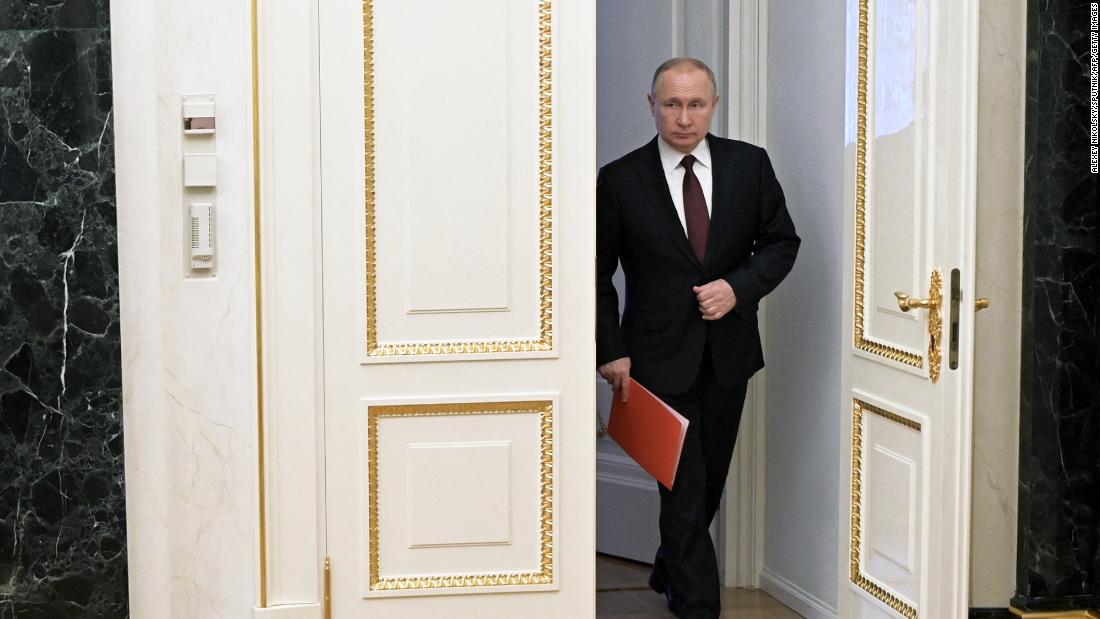The invasion of Ukraine changed everything for Wall Street
“I believe that Russia’s invasion of Ukraine marks nothing less than a shift away from the largely US/Western-dominated world order that has prevailed since the fall of the Berlin Wall,” Michael Strobaek, the global chief investment officer at Credit Suisse, said in a note to clients Friday.
What the Fed will do next to rein in inflation, which has been rising at the fastest rate in decades, has been the subject of fierce speculation. Increasingly, traders have braced for the Fed to aggressively hike interest rates from rock bottom and begin reducing the size of its massive balance sheet, which it built up to support the economy during the pandemic.
But even that decision could be influenced by what’s playing out now in Ukraine.
“It is possible that the state of the world will be different in the wake of the Ukraine attack, and that may mean that a more modest tightening is appropriate, but that remains to be seen,” Waller continued.
“It’s going to put them in a slightly more awkward position,” Ben May, director of global macro research at Oxford Economics, told me.
Yet according to Strobaek, what changed when Russia invaded Ukraine goes far beyond the Fed.
“Russian President Vladimir Putin intends to reposition Russia as a powerful nation whose strength rests on its energy and commodity resources as well as its military,” he said. “This is likely to have significant repercussions for the security arrangements in Europe and globally.”
Furthermore, Strobaek continued, other global powers like China are watching closely to see how the conflict evolves and how the West reacts.
“We are now moving to a new multi-polar world,” he said.
That means investors will have to think differently about how they deploy their resources.
“With this dawn of a new world order, investors should carefully choose their asset allocations,” Strobaek said. “Systematic and strong investment processes and due diligence procedures before investing will become even more crucial. Active investing will become more important given the potential for shifting economic, political and social developments in individual regions.”
Sanctions on Russia could hit these Western companies
International companies with a major presence in Russia are bracing for more sanctions from Western countries.
Russia has already paid a price for its aggression. The country’s stock markets and currency tanked last week after Putin ordered troops into Ukraine.
Sanctions from the United States and European nations intensified as Western nations’ leaders condemned Russia’s actions. Putin warned Russian business leaders on Thursday that he expected further “restrictions” on the economy, but called for business to work “in solidarity” with the government.
BP: British oil company BP is the largest foreign investor in Russia with a 19.75% stake in the country’s national oil company Rosneft. It also holds stakes in several other oil and gas projects in Russia.
Danone: The French yogurt maker Danone controls Russian dairy brand Prostokvanhino and gets 6% of total sales from the country.
ExxonMobil: The American oil giant has more than 1,000 employees in Russia, and has been in the country for over 25 years. Its subsidiary Exxon Neftegas Limited has a 30% stake in Sakhalin-1 — a vast oil and natural gas project located off Sakhalin Island in the Russian Far East. It has operated the project since 1995 on behalf of a consortium that includes Japanese and Indian partners, as well as two affiliates of Rosneft.
McDonald’s: The burger chain has categorized Russia as a high-growth market and continued to open locations there throughout the past decade.
Mondelez: The Oreo maker and owner of Cadbury became the leading chocolate maker in Russia in 2018.
Up next
Friday: US jobs report
![]()


